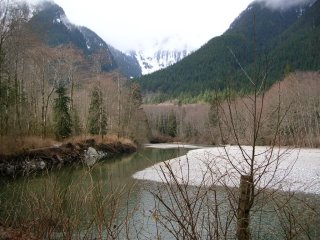So What's Left?
We walked away from God and caught the penalty - alienation from our maker and a world in which pain in our regular companion. Even our environment suffered as God said, "Because you listened to your wife and ate the fruit I told you not to eat, I have placed a curse on the ground. All your life you will struggle to scratch a living from it." (Genesis 3:17)
So all is lost, and the world is an ugly place from now on, as ugly as we are. We're to blame for all the tribulation that is our common lot, because God has washed his hands of us and left us to our own devices. Except that this isn't the way the Bible presents it. God hasn't left us, just judged us. And God isn't done with us - he had a plan from the beginning to bring us back.
The world may show the signs of imperfection, but there is still plenty of glory:

Which means that God is still here. And that is precisely why there's so much mystery about why we suffer in this world. Even if we did mess up and walk away from God, the fact that he's still here should make the suffering of the innocent a non-starter. But the innocent do suffer.
So something very strange is going on. God, who made this world and judged it yet is still here, allows us not only to hurt one another but to hurt those who don't deserve the pain. Is he simply leaving us in our self-made payground unsupervised, or is there something bigger going on?
What is left is a lot, but we still can't explain the pain that comes with the joy.

